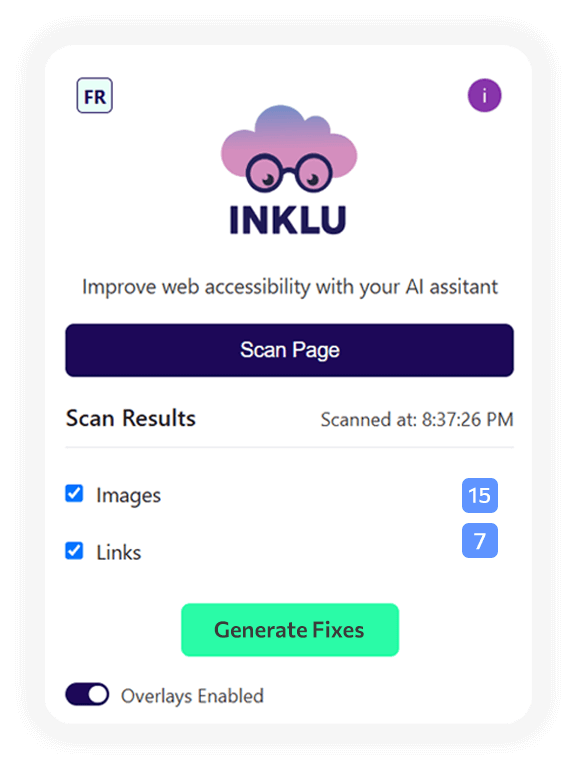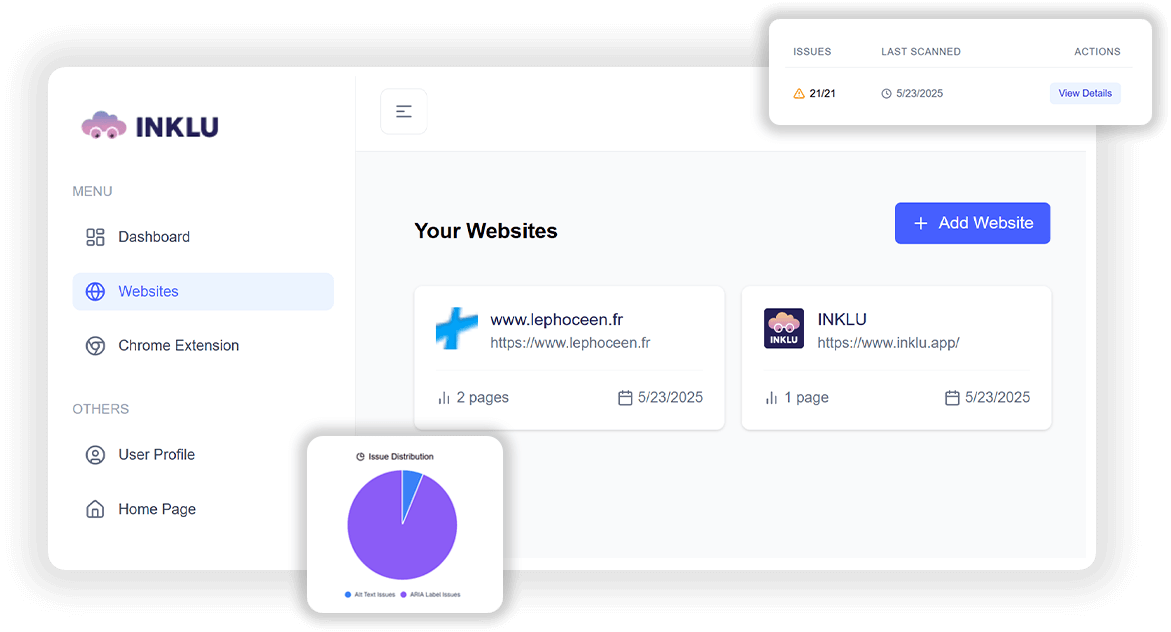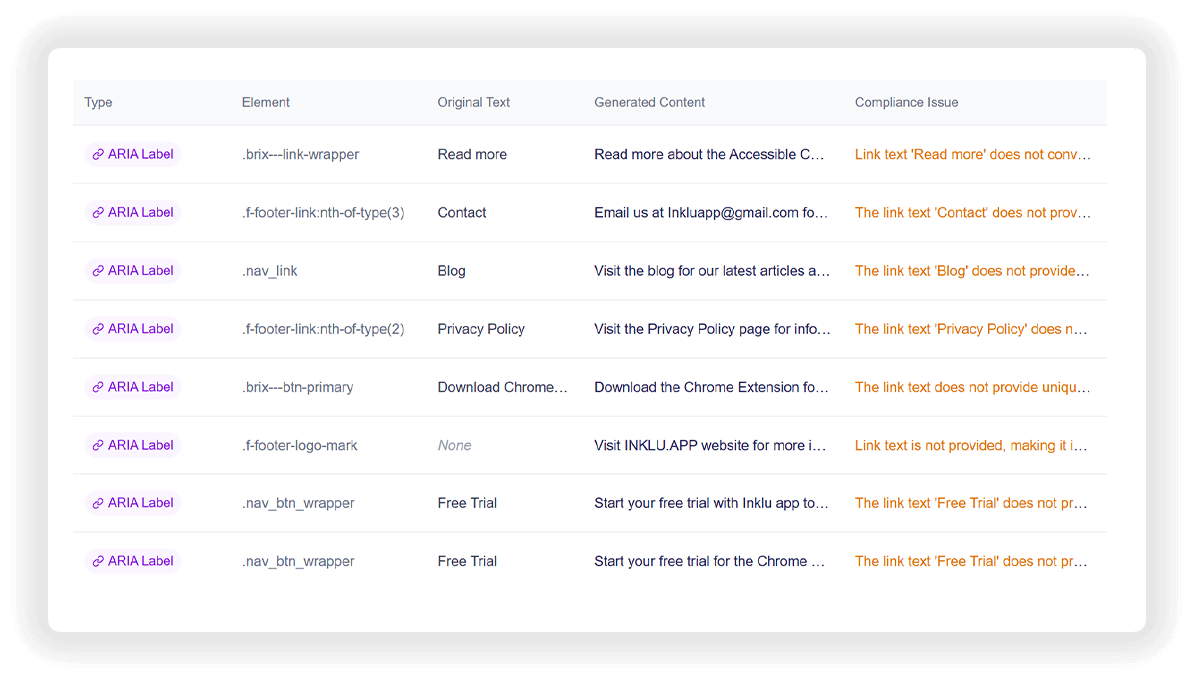Improve Web Accessibility & SEO with AI-Powered tools
Empower your website with AI-driven accessibility and SEO solutions that help you rank higher and reach more users.
Let's see How INKLU Works
Use our web app or Chrome extension to get AI-powered suggestions
and implement changes in just 3 easy steps.
Download extension or upload Image
Drag and drop directly into our interface or install our Chrome extension to analyze images and links on any website in real time.

Scan and Get Instant AI Suggestions
INKLU’s AI engine scans your content and generates smart, accurate alt text, ARIA labels, and identifies other accessibility improvements tailored to your content.

Implement, Export, or Monitor Your Results
Copy suggestions, export to CSV, or integrate changes into your workflow. Use your personalized dashboard to track uploads, review generated content, and monitor ongoing accessibility improvements all in one place.

Make Your Web Content Accessible to Everyone
Our AI-powered tools help you create more inclusive web experiences that
reach a wider audience and meet compliance standards.
AI Alt Text Generation
Automatically generate descriptive alt text for images using our advanced AI algorithms.
ARIA Label Creation
Generate contextual ARIA labels for links to improve navigation for screen reader users.
SEO & Better Rankings
Reach more people and climb search results with AI-optimized alt text and labels.
Accessibility Audit
Scan your content for common accessibility issues and get AI-powered suggestions for fixes.
Time Saving
Reduce manual work and speed up your accessibility compliance process by up to 80%.
WCAG Compliance
Ensure your website meets Web Content Accessibility Guidelines standards.
Be Compliant for Accessibility Legislations
& Standards around the world
Our AI-powered tools help you create more inclusive web experiences that
reach a wider audience and meet compliance standards.
European Regulations
The European Accessibility Act (EAA) sets the standards for digital accessibility:
- EU Web Accessibility Directive — Standards and harmonisation
- Mandatory for all public sector websites and mobile applications
Non-compliance consequences:
• Significant fines based on annual turnover
• Legal action from individual EU member states
• Mandatory product recalls possible
USA Regulations
The Americans with Disabilities Act (ADA) and Section 508 are the primary accessibility laws:
- ADA Title III requires websites to be accessible to people with disabilities
- Section 508 mandates federal agencies to make their electronic content accessible
Non-compliance risks:
• Legal lawsuits (over 2,000 web accessibility lawsuits filed annually)
• Civil penalties up to $75,000 for first violation
• Damage to brand reputation
Canadian Regulations
Key legislation includes AODA and ACA:
- Accessibility for Ontarians with Disabilities Act (AODA)
- Accessible Canada Act (ACA) for federal organizations
Non-compliance penalties:
• Fines up to $100,000 per day for corporations
• Mandatory compliance orders
• Public disclosure of violations
Australian Regulations
The Disability Discrimination Act (DDA) governs web accessibility:
- Applies to all Australian organizations
- Based on WCAG 2.1 Level AA standards
Non-compliance risks:
• Legal complaints to Human Rights Commission
• Federal Court proceedings
• Compensation payments to affected individuals



